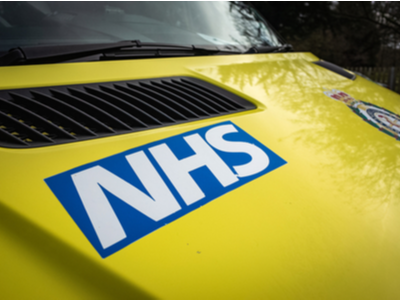South Central Ambulance Service, part of South Central Ambulance Service NHS Foundation Trust (SCASFT), has launched a new initiative, where research paramedics arrive on the scene to deliver a new trial head injury treatment for older adults.
The scheme is part of a study into the use of tranexamic acid (TXA), an anti-bleeding drug, which may prevent life-changing or life-threatening bleeds on the brain – known as intracranial bleeding.
Within the SCASFT statement, the trust highlights that TXA has previously been used to treat patients with life-threatening bleeds from the chest, as well as women with dangerous bleeding from childbirth, and is the ‘only’ treatment to improve outcomes after brain injury.
On the new initiative, Dr John Black, Medical Director, SCAS, said: “We are really pleased to be supporting this vital research project and to have added another innovation to it which is enabling us to get research paramedics out rapidly to this important group of patients to administer treatment.
“A safe and effective treatment for mild head injury in older adults that can be easily administered at home would reduce the severity of associated bleeding, improve patient outcomes and reduce the strain on NHS resources, so this is a very exciting prospect.”
Prof Deakin, Research Lead and Division Medical Director, SCAS, added: “Utilising paramedics to deliver the treatment was key given the importance of quick intervention – and the research car initiative could pave the way for a future model of care for this patient group.
“As bleeding usually occurs soon after injury and early treatment is most effective, paramedics can administer TXA before transport to hospital, reducing delays that would otherwise occur if not administered until hospital arrival.
“This is where SCAS and its innovative use of research cars comes into play in a big way as we can ensure research paramedics are alerted to these patients and can get to them as quickly as possible to administer the treatment and ensure the study can progress at pace.”
To read more about the initiative, please click here.



